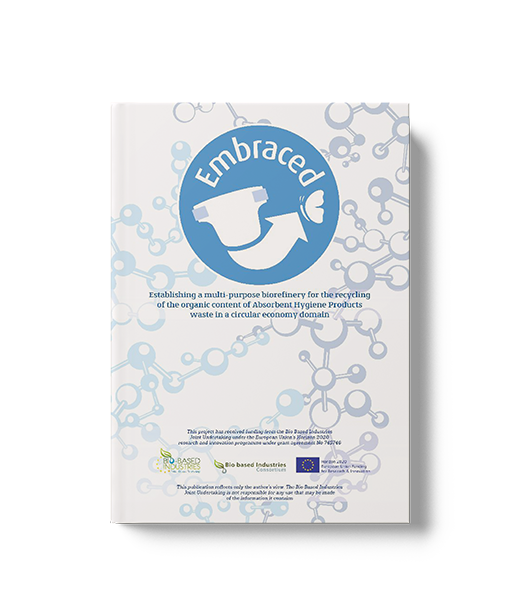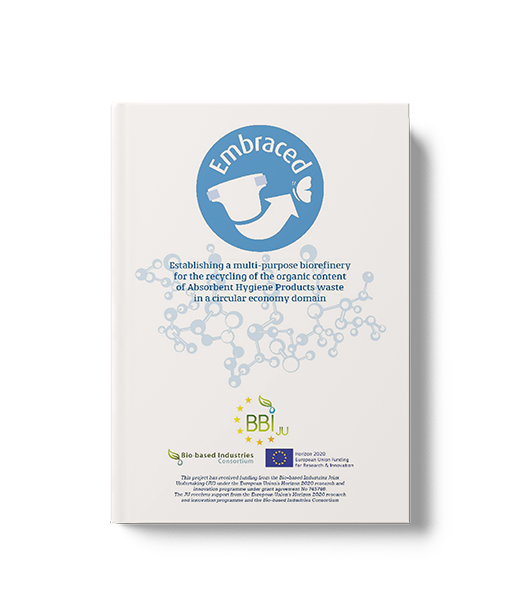From waste to resource. And if we are talking about a mass of waste that today mainly ends up in landfills, the objective is particularly interesting. This is why the project Embraced – Closing the Loop Absorbent Hygiene Products has been funded by the Bio-based Industries Consortium in the framework of the European Horizon 2020 programme.
Starting from an innovative technology developed in Italy, the project aims to test the replicability and scalability of a biorefinery model capable of extracting materials that can be reused in other supply chains from waste from separate collection.
The booklet presents the progress at about the halfway point of the project, which started in 2017 and is scheduled to run for five years, closing at the end of 2022.
Project partners are large and small companies, think tanks, research centres of associations based in Italy, Spain, Germany, Netherlands, Croatia and UK.
Edited by:
Introducing Embraced project
The Upgraded Pre-treatment Plant in Italy
The Separate Collection of AHP Waste
The Collection of Diaper Waste Through Smart Bins in Amsterdam
Creating virtuous models of cooperation among the stakeholders involved along the AHP Value Chain
Regulatory Recommendations to Overcome Legislative Barriers
The Biorefinery Value Chains
First Applications of the Pretreatment Secondary Raw Materials into Final Products
Social Assessment About Bio-based Products
Il programma quadro Horizon è lo strumento pluriennale dell’Unione Europea per finanziare ricerca e innovazione, lanciato nel 1984 con il Primo Programma Quadro (FP1) con edizioni che si svolgono in cicli di sette anni. Strutturato in pilastri tematici – Scienza di eccellenza, Leadership industriale e Sfide sociali – supporta strumenti come i finanziamenti ERC, le borse MSCA e progetti collaborativi.
Coordinato dalla DG Ricerca e Innovazione della Commissione Europea, Horizon Europe favorisce la cooperazione tra università, industria e decisori politici per stimolare innovazione, occupazione e benessere nei cittadini, e in oltre quattro decenni ha finanziato più di 100.000 progetti, consolidando il ruolo globale dell’Europa in ambiti che vanno dall’azione climatica alle tecnologie digitali e alla salute.
Il 16 luglio 2025 la Commissione ha proposto il successore (2028–2034) con un budget di 175 miliardi, includendo “moonshot” in aviazione pulita, spazio e intelligenza artificiale per posizionare l’UE come leader globale.

